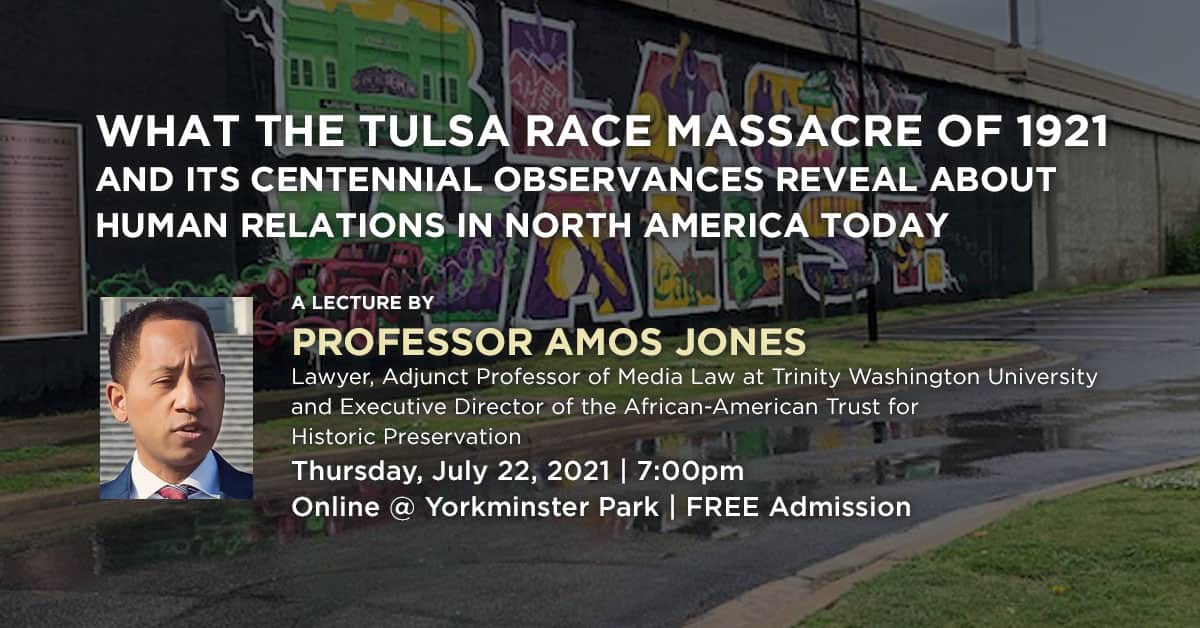
- This event has passed.
What the 1921 Tulsa Race Massacre and its Observances Reveal about Human Relations Today

Donations at the door or when you watch online are voluntary and only partially cover program costs. If you agree that continuing education is worth the investment, We’d love to hear from you.
A new browser tab will open the Yorkminster Park Canada Helps donation page, please select YP Speakers Series from the dropdown menu.
The Tulsa Race Massacre is believed to be the single worst discrete incident of racial violence in American history. During the course of eighteen bloody hours on May 31 and June 1, 1921, more than one thousand homes and businesses were destroyed, and as many as three hundred people killed. By the time the violence ended, Oklahoma’s second-largest African American community had been burned to the ground. As the Oklahoma Historical Society summarized: “The outbreak occurred during an era of acute racial tensions, characterized by the birth and rapid growth of the so-called second Ku Klux Klan and by the determined efforts of African Americans to resist attacks upon their communities, particularly in the matter of lynching.” So, what does a 1921 state-sponsored white massacre of a relatively wealthy Black community in America’s 48th state have to tell us about our own here and now? Join Amos Jones in a lecture that grapples with this and related questions and promises to offer what, to many, might seem to be some surprising answers.
BIOGRAPHY:
Amos Jones is a lawyer and legal scholar from Washington, D.C. He is a widely published authority on the law of racial relations and constitutional rights. As a top-rated practitioner, he has prosecuted numerous civil-rights actions, including against governmental agencies. Jones received his Bachelor of Arts in Political Science, cum laude, from Emory University in 2000, his Master of Science from the Columbia University Graduate School of Journalism in 2003, and his Doctor of Laws degree from Harvard University in 2006. In 2006-07, he was a Fulbright/Visiting Scholar at Melbourne and in Fall 2015 was Academic Visitor to the Faculty of Law at Oxford. In addition to engaging in the full-time practice of law and lecturing widely, Jones, a former journalist, serves as Adjunct Professor of Media Law at Trinity Washington University and Executive Director of the African-American Trust for Historic Preservation.

